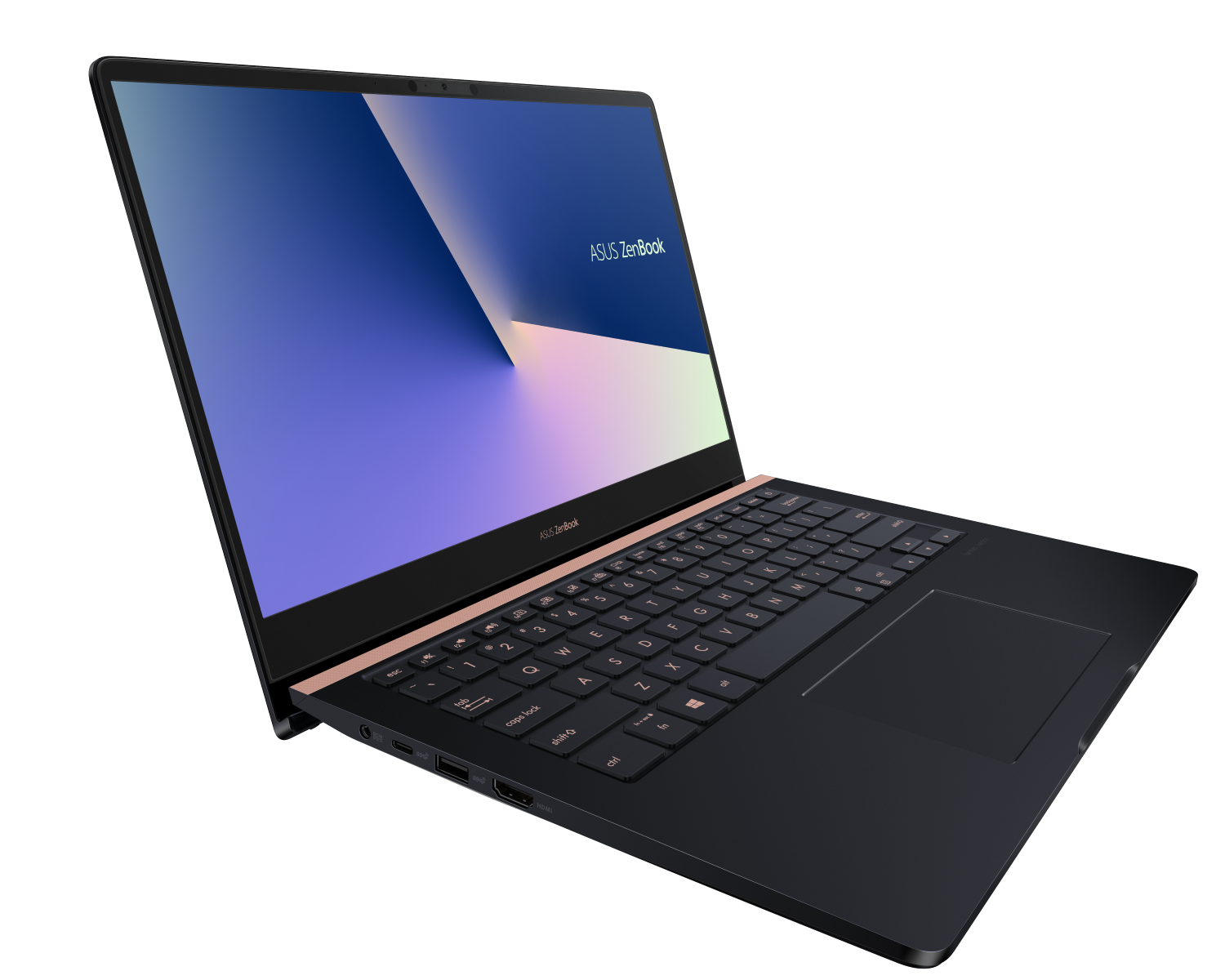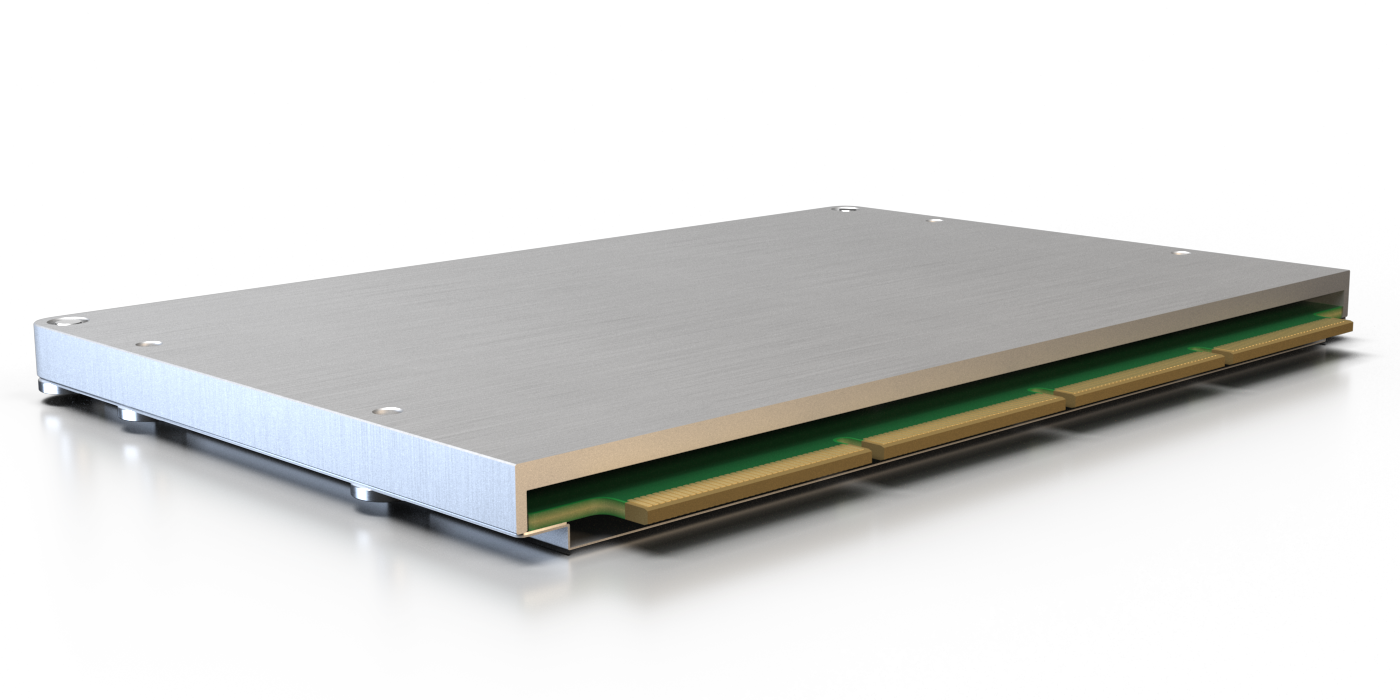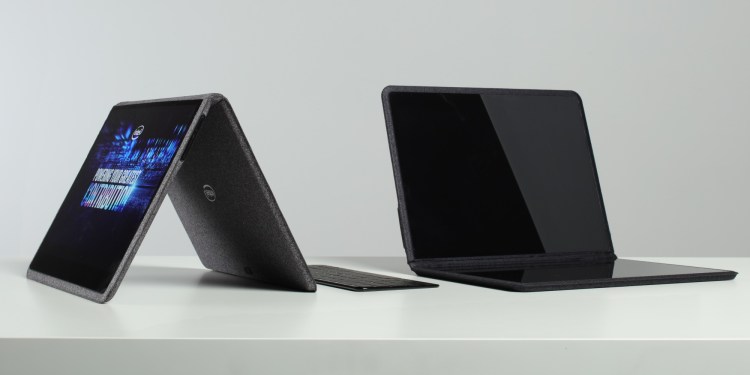Watch all the Transform 2020 sessions on-demand here.
In addition to announcing 10th generation Intel Core processors and Project Athena, Intel also held a Technology Open House at Computex 2019 this week in Taipei. The goal was to demo a few prototype devices leveraging ambient computing, artificial intelligence (AI), and modular computing.
“Intel’s long history of delivering leadership performance, driving deep co-engineering, and scaling new designs will accelerate platform innovation and put a new class of compute performance and intelligence in people’s hands,” Jim Johnson, Intel corporate vice president of client engineering, said in a statement. “At Computex, Intel is demonstrating its ability to create the platform of the future, with key initiatives such as Project Athena bringing AI to the PC and continuing to lead the way in transforming the PC ecosystem.”
Ambient compute concept PC
“Ambient compute” or “ambient intelligence” refers to electronic environments that are responsive to the presence of people. In other words, PCs that are always on, aware, and sensing so they can adapt to people’s needs.
The Intel ambient PC prototype, codenamed Mohawk River, is a laptop that can:
June 5th: The AI Audit in NYC
Join us next week in NYC to engage with top executive leaders, delving into strategies for auditing AI models to ensure fairness, optimal performance, and ethical compliance across diverse organizations. Secure your attendance for this exclusive invite-only event.
- Be always ready and proactively adapting to users.
- Anticipate user needs and commands by leveraging human presence sensors, 180-degree cameras, exterior secondary displays, and Intel local voice ID.
- Connect with people using closed-lid intelligence, allowing for seamless transition from open lid to closed lid and back again.
- Continue working efficiently, getting relevant information, and staying connected, even with the lid closed when in transition.
- Amplify planned or adhoc meetings with 360 video conferencing.
Intel also talked about hands-free login with Windows Hello and Intel Context Sensing Technology. Being able to log in hands-free is the baby step, while Mohawk River is the direction Intel hopes ambient computing will go.
AI on PC Development Kit

Next, Intel announced an AI on PC Development Kit in partnership with Microsoft and Asus. The dev kit, coming in July 2019, consists of an Asus ZenBook Pro 14 UX450FDA laptop with the latest AI software and hardware technologies for developers.
The laptop has a 14-inch display, 16GB of RAM, and a 512 GB SSD. It’s powered by an Intel Core i7 processor, with Intel integrated graphics, and — for the first time — an Intel Movidius Myriad X VPU. Intel promises that the three hardware engines will be able to run a diverse range of AI workloads.
The laptop comes with Windows 10, Windows ML libraries, Intel Distribution of OpenVINO toolkit, Intel Distribution for Python, and a 30-day trial of Visual Studio 2019 Enterprise. The device includes getting started guides, code samples, tutorials, sample applications, and Windows skills.
NUC Compute Element

Intel also announced the Intel NUC Compute Element, which the company hopes will set an industry standard for modular compute. The initial NUC Compute Element will be available with a range of processors (including versions with Intel vPro). The first products are slated to arrive in the first half of 2020.
The NUC Compute Element incorporates an Intel CPU, memory, and connectivity. It is capable of powering laptops, kiosks, smart TVs, appliances, and so on. Intel promised the NUC Compute Element is easy to integrate, upgrade, and service. But the company didn’t offer pricing details.
Separately, Intel announced Intel Optane memory M15, available in Q3 2019. Featuring higher performance and lower power, Intel Optane memory M15 promises short boot times, fast application launches, and fast gaming and browsing.


